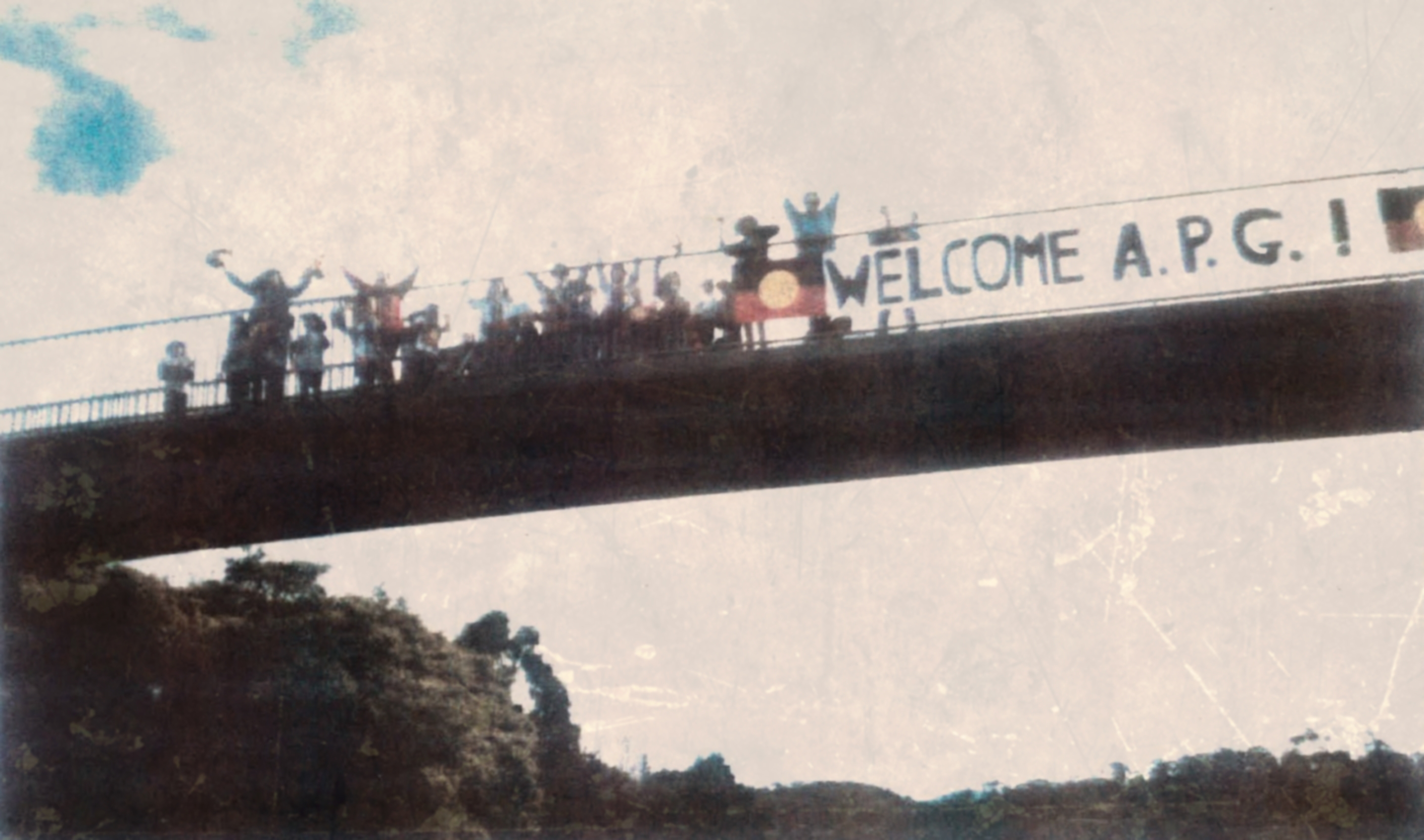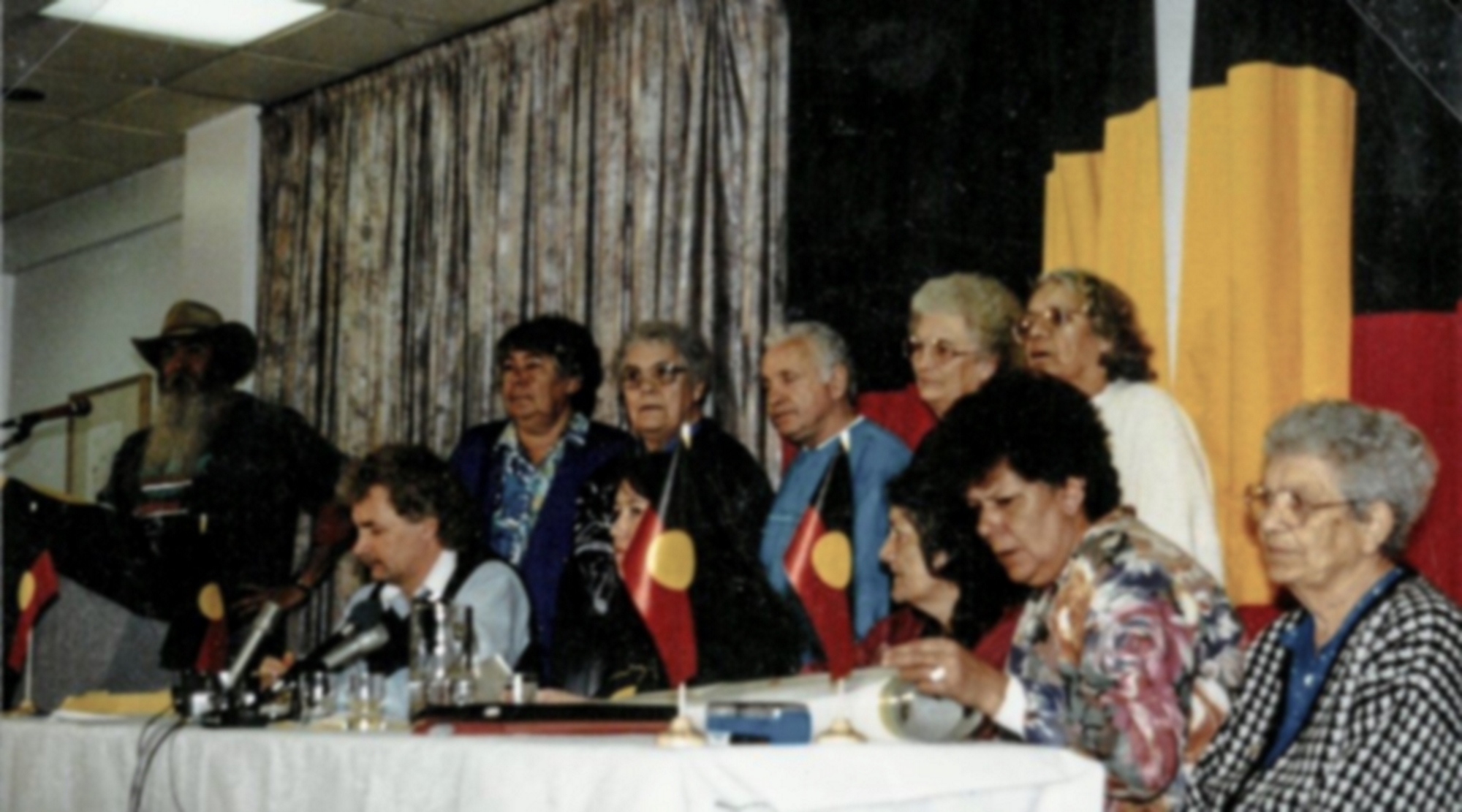ABOUT the Aboriginal Provisional Government
History of the APG
The Aboriginal Provisional Government (APG) was formed on the 16th of July 1990. Established on the principle that Aborigines are a sovereign people, the APG campaigns for Aboriginal self-determination and self-government.
Rejecting assimilation into the Australian state, the APG maintains that we as Aboriginal people have the right to decide the future of our lands and lives to the exclusion of colonial interference. We ran this country once, and our sovereignty as Aboriginal people is the authority we hold to run our country again.
The APG's policy of enacting Aboriginal sovereignty has manifested in a number of ways:
The APG issues Aboriginal passports on the basis that the Aboriginal nation is separate to the Australian nation, and that Aboriginal people have distinct rights, including having a separate passport. Other nations having accepted APG issued travel documents including Libya (1987 & 1988), Norway and Switzerland (1990), and the Mohawk nation (2014). The Australian government refuses to recognize the Aboriginal passport. However, many Aborigines have successfully re-entered their country through Australian customs providing only the Aboriginal passport.
The APG issues Aboriginal birth certificates so that Aboriginal children can be registered as citizens of the Aboriginal nation. This is an alternative to our people being forced to register their children at birth with the colonial Australian state. Having our own birth certificates is a rejection of the obligations imposed on us by colonial law, a unique challenge to the present colonial system of government. The APG first began issuing Aboriginal birth certificates in 1992.
Sending diplomatic delegations overseas, the APG has sought recognition of Aboriginal sovereignty from the international community. This follows a legacy set down by the Aboriginal Embassy in the early 1970s with their trips to Chairman Mao’s China, as well as Aboriginal delegations to Colonel Gaddafi's Libya in the late 1980s. In 1994, founding APG Chairperson Bob Weatherall and Secretary Michael Mansell travelled to Vanuatu seeking standing at the South Pacific Forum. “We need to get status throughout the world,” Mansell proclaimed. The APG was refused entry to the meeting after Australian Prime Minister Bob Hawke used Australia’s financial muscle to pressure the South Pacific nations. In 2014, a delegation met with representatives of the Haudenosaunee Confederacy in Mohawk territory [Quebec, Canada].
The APG issues visas to non-Aboriginal people currently living or seeking to live within the borders of the Aboriginal nation. Those who apply for APG issued visas acknowledge the Aboriginal assertion of continuing sovereignty.
One of the APG's tasks is to encourage discussion within the Aboriginal community about our future as a people. The APG has facilitated and contributed to discussions about models for the practical application of Aboriginal self-determination (e.g. treaty, 7th state, Aboriginal assembly).
In August 1992, the APG held it's first national meeting in Hobart:
Over 150 Aboriginal men, women and children noisily welcomed delegates at the Hobart airport. Local and national media filmed the event. Delegates were driven to the city, not in a haphazard way, but in a convoy of cars flying Aboriginal flags from the bonnets. These people were the ambassadors of each of the Aboriginal communities they were representing. On its way to the city, the convoy passed under a bridge where children from the Tasmanian Aboriginal Centre's Child Care Centre held up a huge banner they had made proclaiming "Welcome APG". Organisers had arranged for the convoy to travel right through the city, with police stopping all other traffic at intersections.

Founding APG Chairperson Bob Weatherall (Gamilaraay) 1992
"The Aboriginal Provisional Government is the product of the many generations of Aboriginal people who have fought despairingly for Aboriginal justice. It represents the reality that only we, as Aboriginal people, can forge a proper place for ourselves and those generations of Aborigines to come."

Structure of the APG
The APG Executive Council is responsible for spearheading the organization's activities and agenda for change, but does not claim to be a representative body. Reflecting the traditions and beliefs of Aboriginal groups nationwide, the APG was initially established with a governing Council of Elders.